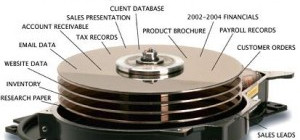Monitoring your system and application tech is very important in order to maintain its health status. A Log file usually keeps track as well as monitor all the important activities that happen within your server and the applications that run on it. By doing this, you will know how your server is performing, errors in system components, configuration status and the security of your system.

If your system is not performing well which usually happens with increase in user load, it will greatly affect the user experience mainly by slow loading times or having pages that do not load at all. When there are errors, they will result in system or application malfunction due to loss of network connectivity, application going out of memory or even the server going off-line.
Incorrect configurations usually affect overall performance of your system and applications because configuration settings are usually predetermined. The importance of your system security cannot be underestimated because any intrusion by unauthorized persons can have serious repercussions to your business.
The most important aspect about the tech of log file monitoring is that you get a detailed insight about your system and applications so that you can act on any underlying issues proactively.
What to monitor
Log files can be classified into different categories that include: event logs, service logs, application logs, service logs, system logs among many other log files. With a huge number of log files available, it can be difficult to monitor and analyze all of them.
Sometimes, it is very difficult to find the log file that you need for specific kind of information.
The health of your system and applications is better if you can be able to monitor all the log files but before that happens; you need to work with the most important ones that include:
- System activity
System information and messages should be monitored in order to track errors related to booting, service and any other messages.
- Authentication
The security of your system is very important and you need to track how your authorization system is being used. For instance, you will get information about any failed login attempts as well as successful logins which helps to know when there are any hacking attempts.
- Booting information
Downtimes can be very costly to your business or company and you should be able to track bootup messages that are stored in the log file. In case of any unexpected shutdown, you will establish if there was any booting failure, improper shut down or reboots that were not planned for.
- Hardware and drivers
Sometimes, the physical hardware devices may fail to function properly as a result of errors. In order to troubleshoot the issue, you will need information about the device status and the device errors among other messages contained in the respective file log. You will need to track your CPU and memory utilization as well as your file system.
- Network
It is possible for your network to fail or not perform well. In such a case, you will need to track the availability of your server, network latency as well as the network components. You will also need information concerning network and server configuration.
- Emails
You need to track all the mails that were received and sent for a particular period of time. This will give you information concerning any spamming attempts and also trace the origin of emails.
The tech that your system use needs to be monitored so that issues can be identified before they happen and solved. You can tail a log file in order to monitor it in real time and ensure the health of your system and applications.







